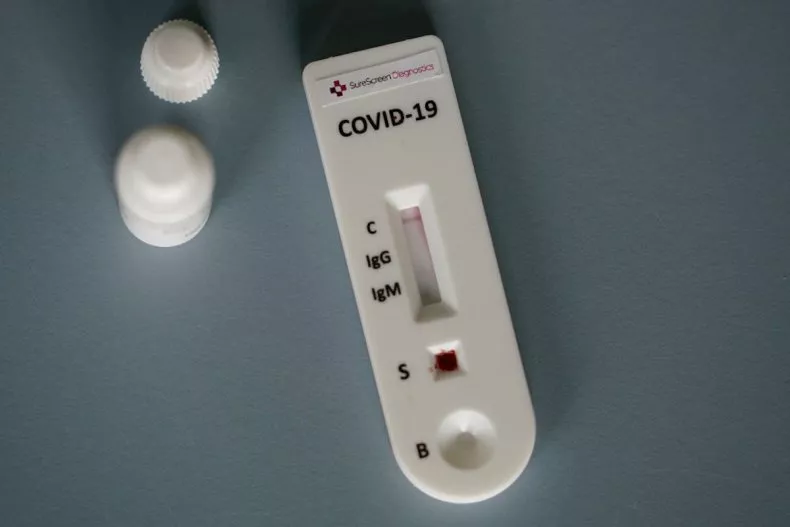Scientists have urged patients and health care staff to be more proactive about addressing mental health concerns as a new study identifies a higher risk of psychiatric disorders among people suffering from COVID-19.
Researchers at Oregon State University (OSU) used data from the National COVID Cohort Collaborative (N3C) for their study.
They matched 46,610 COVID-positive individuals with control patients who were diagnosed with a different respiratory tract infection to find out more about the effect of COVID-19 on patients’ mental health.
Their analysis reveals that the risk of COVID-19 patients developing a psychiatric disorder following their infection was 25 percent higher.
The researchers from the OSU’s College of Public Health and Human Sciences were able to determine that COVID-19 patients had a 3.8 percent rate of developing a psychiatric disorder compared with 3.0 percent for other respiratory tract infections.
They point out that the 0.8 percent difference amounted to an increased relative risk of 25 percent.
Co-author Lauren Chan underlined the large amount of data drawn from across the United States. Chan said the findings would offer new opportunities to researchers focusing on post-COVID side effects such as anxiety and mood disorders.
The scientist explained it would be of great importance that patients and health care institutions to become more proactive when it comes to addressing mental health concerns following infection with the COVID-19 virus.
Chan said: “For people that have had COVID, if you’re feeling anxiety, if you’re seeing some changes in how you’re going through life from a psychiatric standpoint, it’s totally appropriate for you to seek some help.
“And if you’re a care provider, you need to be on the proactive side and start to screen for those psychiatric conditions and then follow up with those patients.”
Chan suggested health care providers should arrange checkup dates with their patients around two weeks after their first appointment. She commented that care would often stop after just one session at the doctor’s office.
“There could certainly be people who are struggling with new things like this, and they need that additional support or push to seek some help.”
She added: “If you start to have concern for yourself or a family member, it’s not unheard of. You should definitely seek care for yourself or others around you.”
The U.S. registered around 85 million COVID-19 infections while 1.01 million fatalities have been linked to the virus.
OSU is an international public research university based in the town of Corvallis, Oregon. Founded in 1868, it draws people from more than 100 countries today. It’s the biggest university in Oregon and offers more than 200 undergraduate and 100 graduate degree programs.
Article was originally published by Newsweek.

